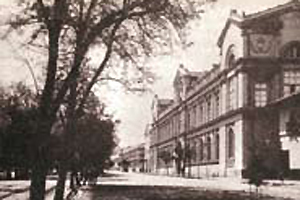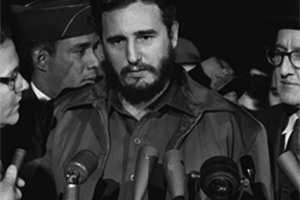He was born in San Felipe on May 16th, 1836. His parents were Jose Maria Cifuentes Olivares and Paula Espinoza Pinto. First, he studied at his town’s local public school and then at the Instituto Nacional, in Santiago. In June of 1861, he became a lawyer, graduating from the Universidad de Chile.
As a teacher, he worked at the San Luis school and at the Instituto Nacional. In 1882, he was a professor of the Philosophy Faculty in the Universidad de Chile, and from 1889 on, at the Universidad Catolica. At the same time he worked as a journalist, editing the conservative newspaper El Bien Publico, and then, along with Zorobabel Rodriguez, he founded the El Independiente newspaper (1864). Between 1867-1870, he was elected deputy for Rancagua, then for Santiago (1873-1876) and later for San Felipe (1879-1882). Later still, he was senator for Llanquihue (1888-1894), Aconcagua (1894-1897) and Santiago (1906-1912).
At the beginning of president Federico Errazuriz Zañartu’s government (1871), he was named minister of Justice, Cult and Public Instruction. A few of the initiatives undertaken by Cifuentes were to propose to the State Council the creation of the Ministry of Foreign Relations and the construction of two armored ships for the National Squadron.
Within this ministry and in the area of education, he carried out several initiatives, like motivating the reform of the control process for graduate school students, he implemented awards for teachers for their years of service and he promoted the replacement of male teachers at primary schools for boys for women teachers.
In addition, in January of 1872, Cifuentes signed a decree that authorized some educational establishments to offer tests that allowed applications to university degrees, a task that until that moment had been in the charge of the University Council of the Universidad de Chile.
He also authorized the students of the Instituto Nacional to study a few subjects of the Law program. His religious background locked him in disputes with the establishment’s chancellor.
Diego Barros Arana was ultimately removed from his position by minister Cifientes. This incident brought on the provisional closing of the school and the interpelation (questioning) of Cifuentes by Guillermo Antonio Matta in Congress in 1873. This act produced the resignation of Cifuentes from the ministry.
He passed away in Santiago on April 13th, 1928.








